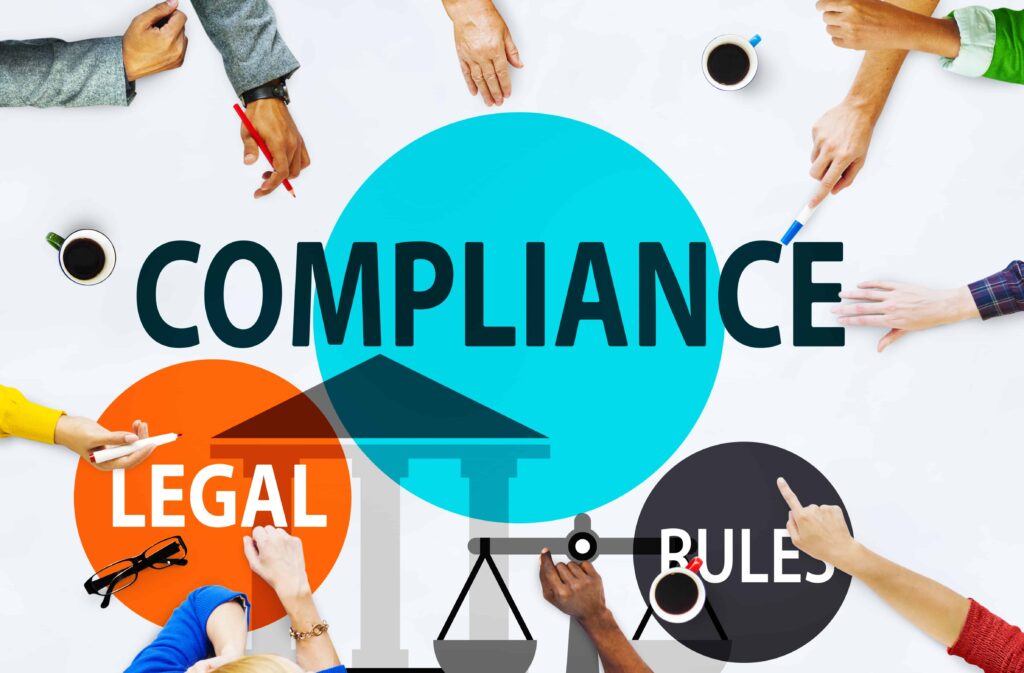Dubai’s booming economy, tax-friendly environment, and strategic location have made it one of the most attractive hubs for entrepreneurs across the globe. While launching a startup in Dubai offers incredible opportunities, it also comes with a unique set of legal compliance requirements that can be challenging for new business owners to navigate.
At Nilab Consultants, we specialize in helping startups establish a legal and compliant presence in Dubai. Whether you’re setting up a tech firm, e-commerce business, or consultancy, this article will guide you through the most common legal and regulatory hurdles—and how to avoid them.
1. Choosing the Right Business Structure
The first major decision every entrepreneur faces in Dubai is choosing the right business structure. Options include:
-
Mainland Company
-
Free Zone Company
-
Offshore Company
Each structure comes with different ownership rules, licensing procedures, tax implications, and operational freedom.
Common Challenges:
-
Confusion between mainland vs. free zone setup
-
Misunderstanding ownership rights
-
Compliance with sector-specific regulations
Solution:
Nilab Consultants offers personalized company formation services in Dubai, guiding you through every step—right from choosing the right structure to handling documentation and legalities.
2. Licensing & Permits
All businesses operating in Dubai must be licensed by the Department of Economic Development (DED) or an appropriate Free Zone Authority. The type of license you need depends on your business activity:
-
Commercial License – For trading and retail businesses
-
Professional License – For service providers and consultants
-
Industrial License – For manufacturing and industrial activities
-
E-commerce License – For online businesses
Common Challenges:
-
Selecting the wrong license type
-
Hidden fees or delays
-
Lack of awareness of sector-specific approvals (like healthcare, finance, etc.)
Solution:
We help startups determine the correct license type, file applications, and coordinate with government departments to expedite approvals and prevent compliance issues down the line.
3. Understanding UAE’s Foreign Ownership Rules
As of recent updates, Dubai allows 100% foreign ownership in many sectors—but not all. For startups outside free zones or in restricted industries, foreign ownership is capped unless a local Emirati sponsor or service agent is involved.
Common Challenges:
-
Misinterpretation of foreign ownership laws
-
Trouble finding a reliable local sponsor
-
Confusion between corporate sponsorship vs. individual sponsorship
Solution:
Nilab Consultants offers trusted local sponsor matching services, and we explain the pros and cons of various ownership models so you stay compliant while retaining maximum control.
4. Visa and Immigration Compliance
If you or your team members need to work in Dubai, you’ll need valid residency visas and work permits. As a startup, securing visas for founders, investors, and employees can be complex and time-consuming.
Common Challenges:
-
Understanding the visa quota system
-
Document rejections or delays
-
Non-compliance with labor law timelines
Solution:
We manage the entire visa application lifecycle, from quota application to medical tests, Emirates ID registration, and labor contracts—ensuring a smooth and compliant onboarding process for you and your team.
5. Taxation & Corporate Compliance
Although Dubai is known for being tax-free, that doesn’t mean you’re off the hook entirely. The UAE Corporate Tax regime (effective from June 2023) introduces a 9% corporate tax on businesses with net profits exceeding AED 375,000.
Also, Value Added Tax (VAT) at 5% applies to many types of businesses that exceed the minimum revenue threshold.
Common Challenges:
-
Failing to register for VAT or corporate tax
-
Inaccurate bookkeeping
-
Missing tax deadlines
Solution:
Nilab Consultants provides corporate tax and VAT compliance services, including registration, filing, and advisory. We help startups stay audit-ready and avoid costly penalties.
6. Employment Law Compliance
Startups must follow UAE’s Labor Law (Federal Decree-Law No. 33 of 2021), which governs everything from employment contracts and working hours to termination and employee benefits.
Common Challenges:
-
Drafting compliant employment contracts
-
Understanding probation, sick leave, and end-of-service benefits
-
Risk of disputes due to unclear HR policies
Solution:
We offer HR legal support, including employee contracts, handbooks, and dispute resolution frameworks to protect both employer and staff interests.
7. Data Protection and Cybersecurity Compliance
The UAE has introduced new data privacy laws, including the UAE Federal Data Protection Law (2021), which aligns closely with international standards like GDPR.
Common Challenges:
-
Misuse or mishandling of client data
-
No privacy policy or consent protocols in place
-
Weak cybersecurity measures
Solution:
Nilab Consultants helps startups implement data protection policies, terms & conditions, and privacy notices to ensure full compliance and customer trust.
8. Intellectual Property Protection
Startups often overlook IP protection in their early stages. Whether it’s your logo, brand name, app code, or marketing materials, not registering your intellectual property in the UAE can expose you to theft or misuse.
Common Challenges:
-
Ignoring IP registration
-
Infringement disputes
-
Unlicensed use of third-party content
Solution:
Our legal team can assist you in trademark, patent, and copyright registration in Dubai and the broader UAE—safeguarding your creative and commercial assets.
9. Regulatory Compliance by Industry
Certain sectors like fintech, healthcare, education, and logistics have additional compliance layers. These include:
-
Approvals from the Dubai Health Authority (DHA)
-
Central Bank compliance for fintech
-
KHDA approvals for educational services
-
Dubai Municipality certifications for logistics and food sectors
Common Challenges:
-
Non-compliance due to ignorance of sector-specific rules
-
Application rejections
-
Delays in launching
Solution:
Nilab Consultants performs sector-specific legal due diligence and manages communication with relevant authorities, ensuring your startup meets all regulatory requirements before launch.
10. Staying Up to Date with Legal Changes
UAE’s legal environment evolves quickly. Recent years have seen sweeping reforms in labor law, foreign ownership, corporate tax, and online business regulations. Startups that fail to stay updated risk fines, suspension, or even license cancellation.
Solution:
We offer ongoing legal consultancy retainers to ensure you’re always compliant and legally protected—without needing to hire in-house legal counsel.
Final Thoughts
Launching and scaling a startup in Dubai is full of potential—but staying compliant is non-negotiable. Legal missteps can cost you time, money, or even your business. By partnering with experienced consultants, you can avoid these risks and focus on what you do best: growing your business.
At Nilab Consultants, we offer startup-friendly packages covering:
-
Business setup and licensing
-
Local sponsorship arrangements
-
Tax and legal compliance
-
Visa and HR support
-
Intellectual property protection
-
Ongoing legal advice
Ready to Launch Legally in Dubai?
Let Nilab Consultants handle the complexities of legal compliance while you build your dream venture. Contact us today for a free consultation.

